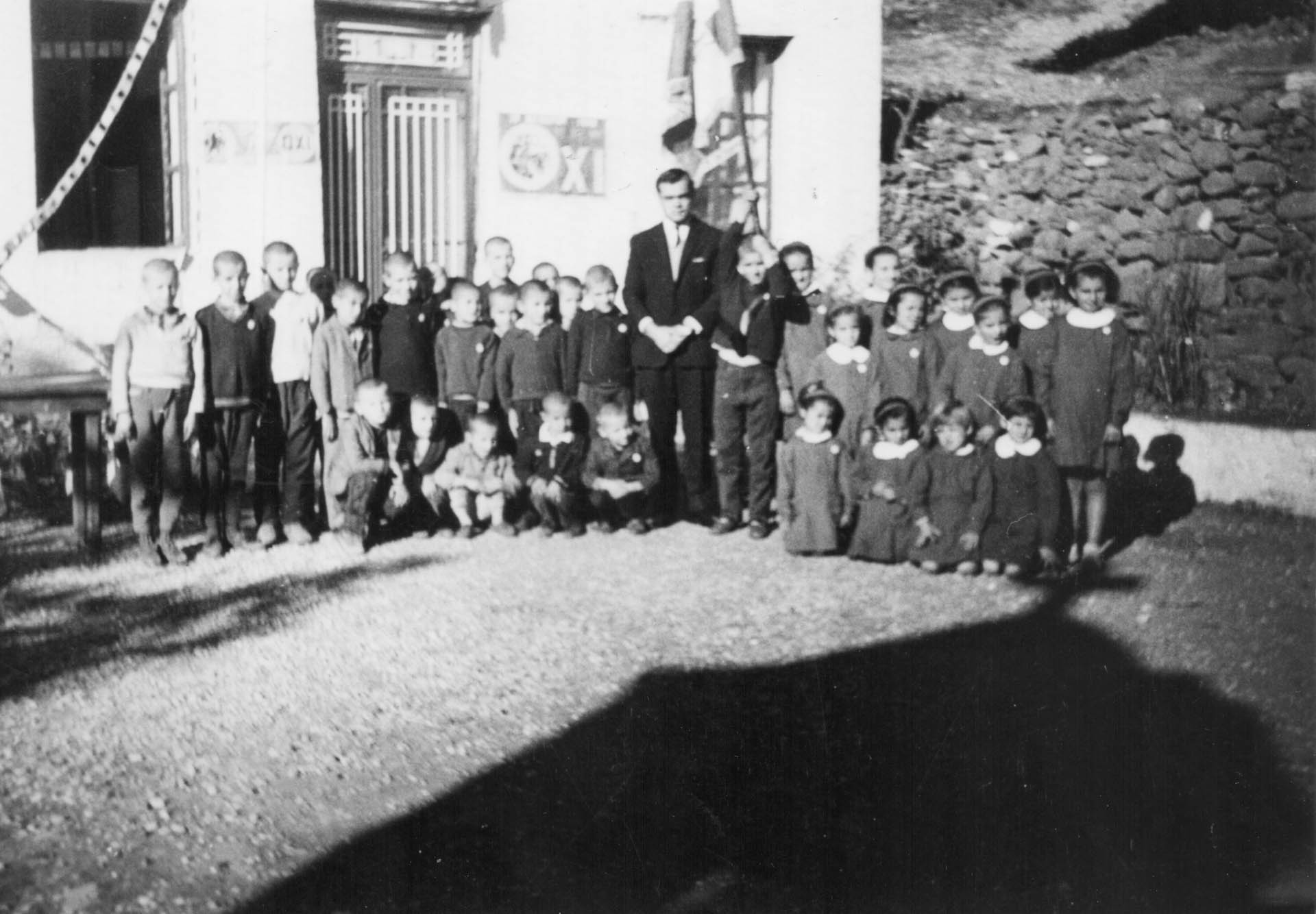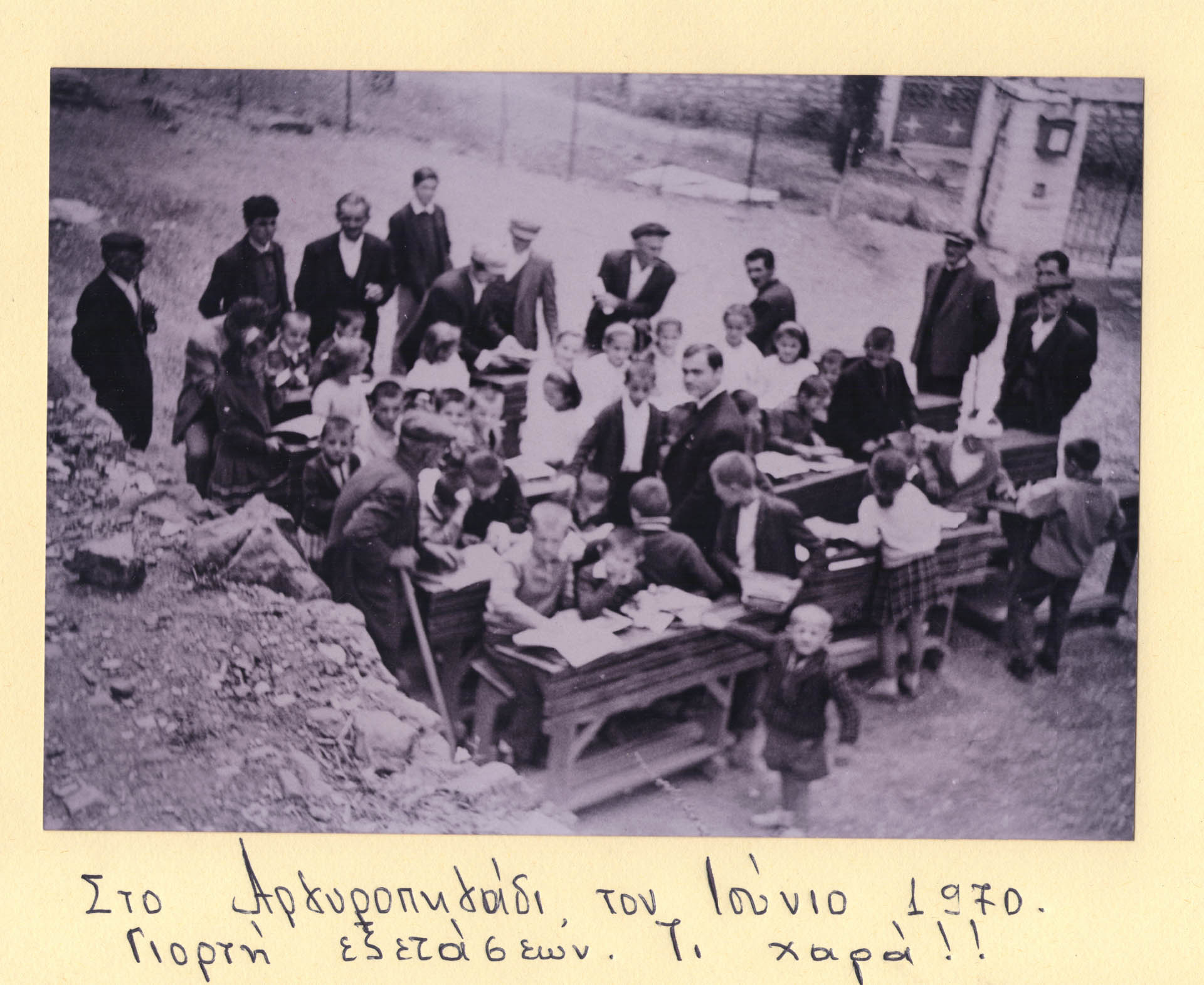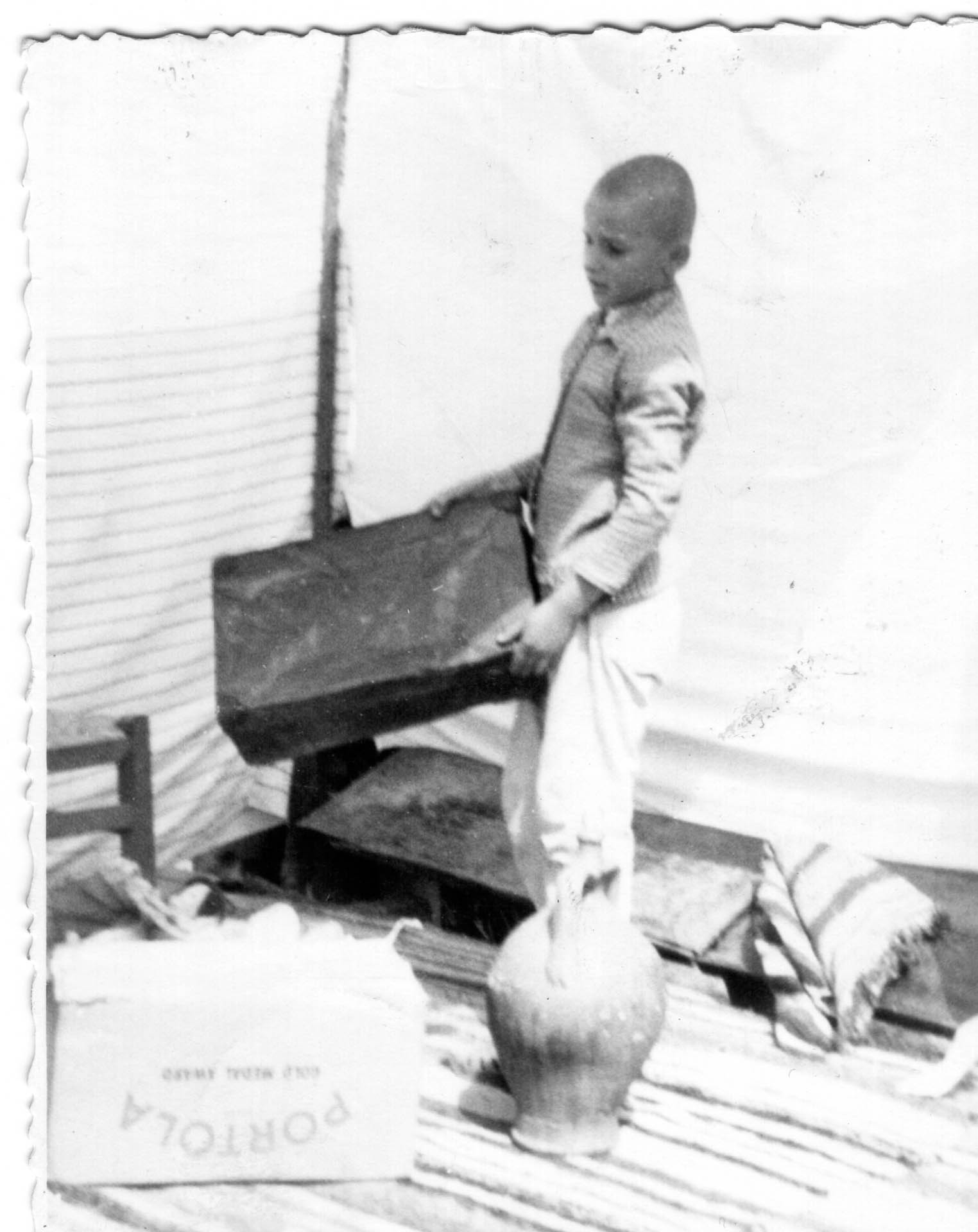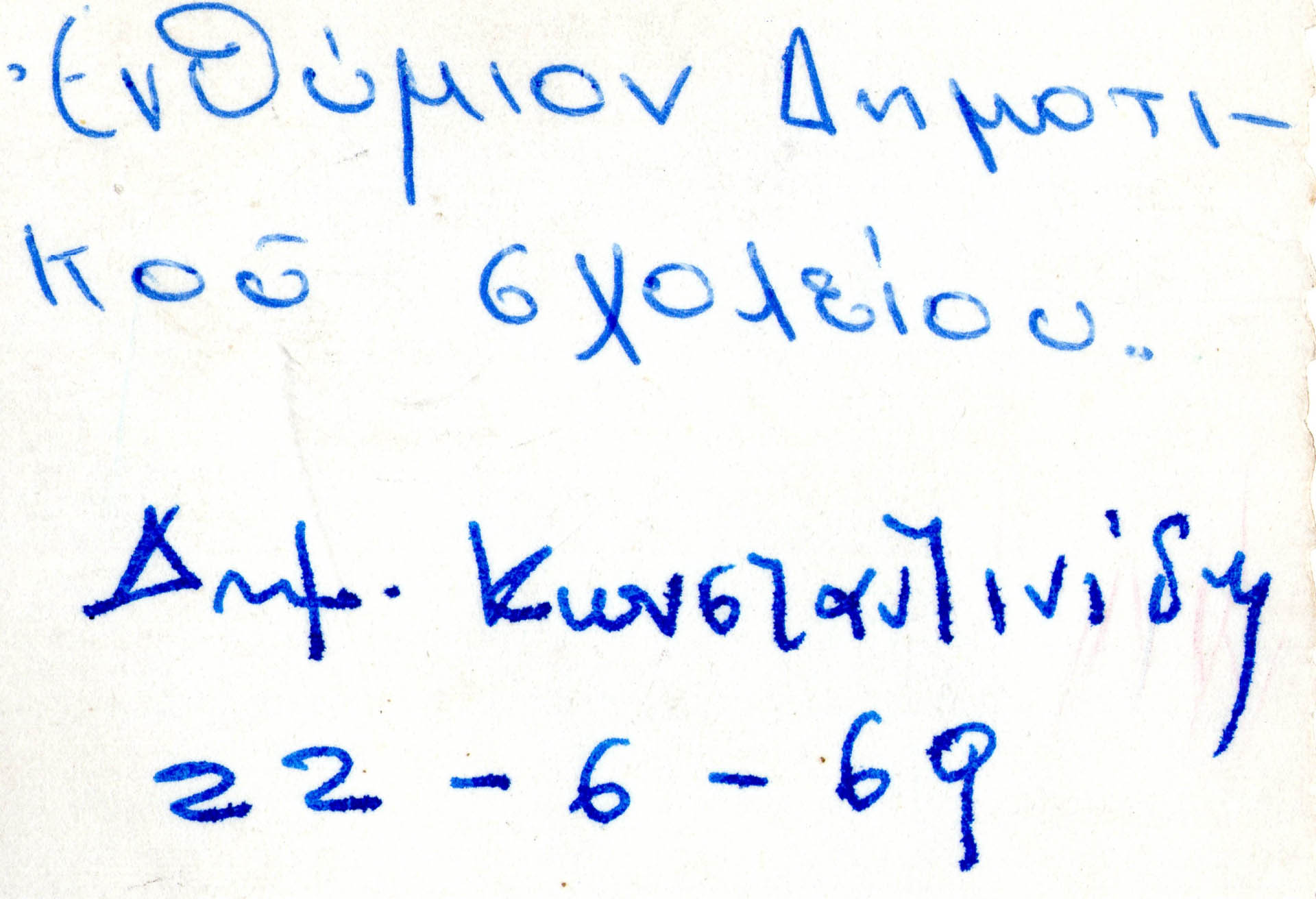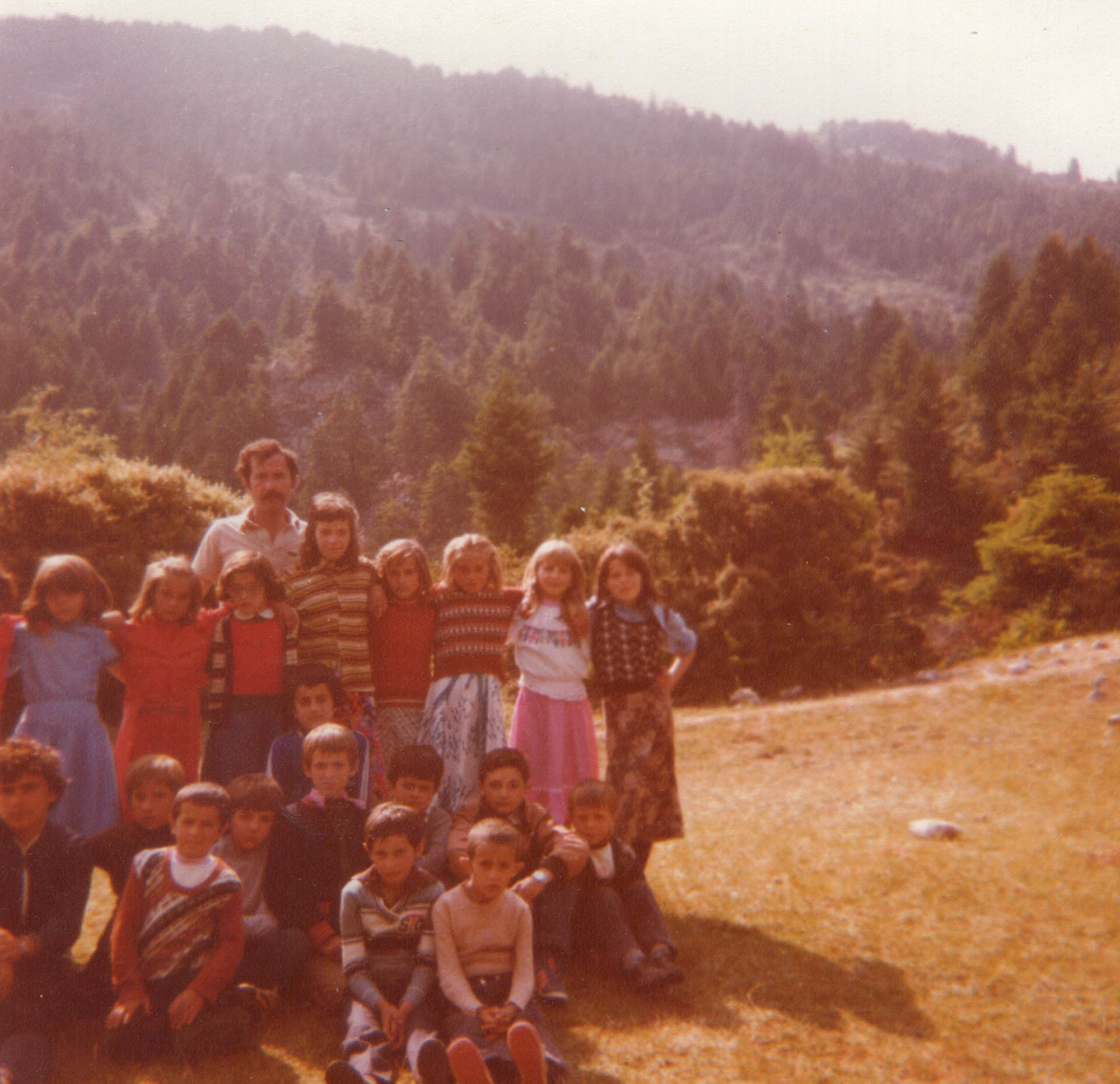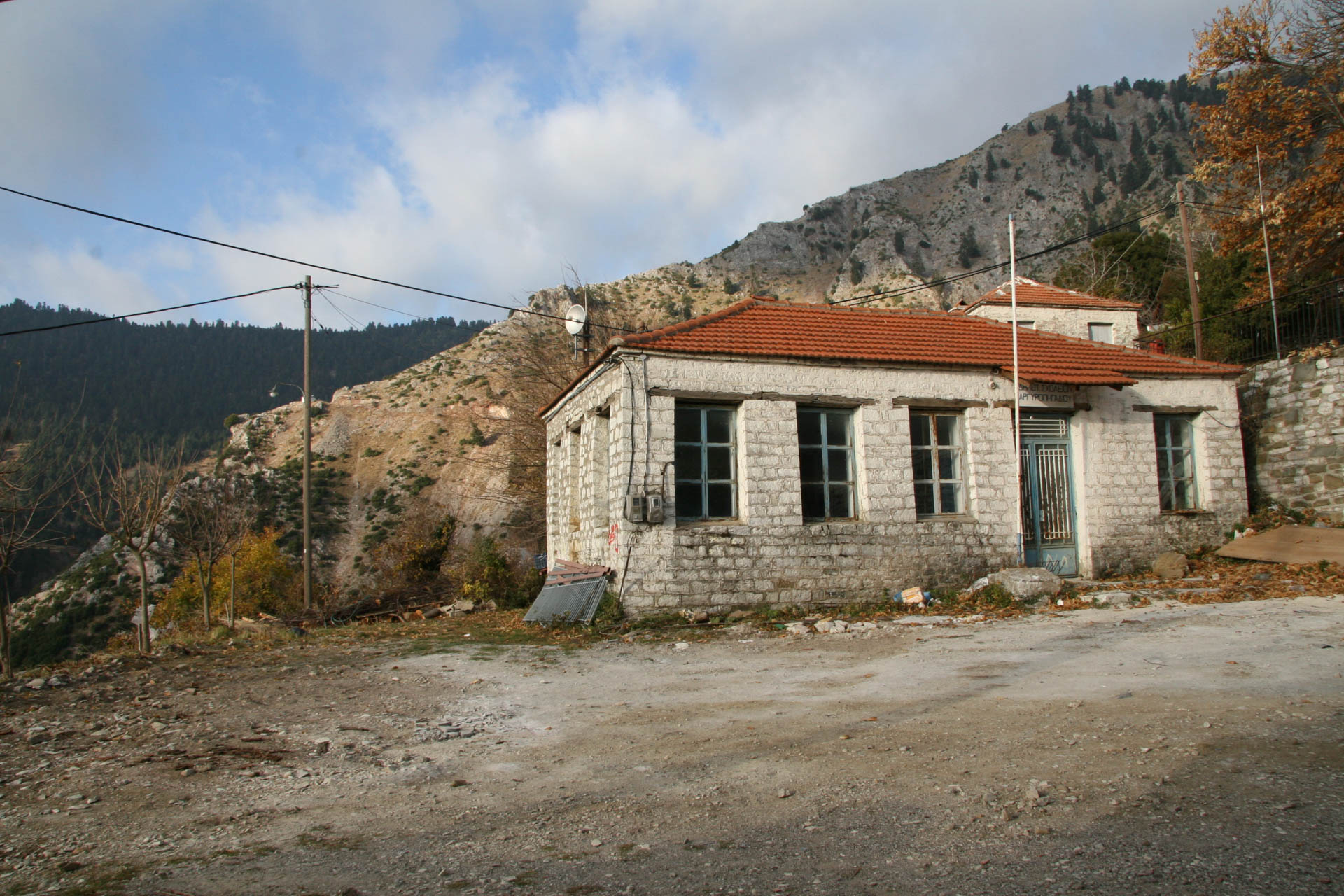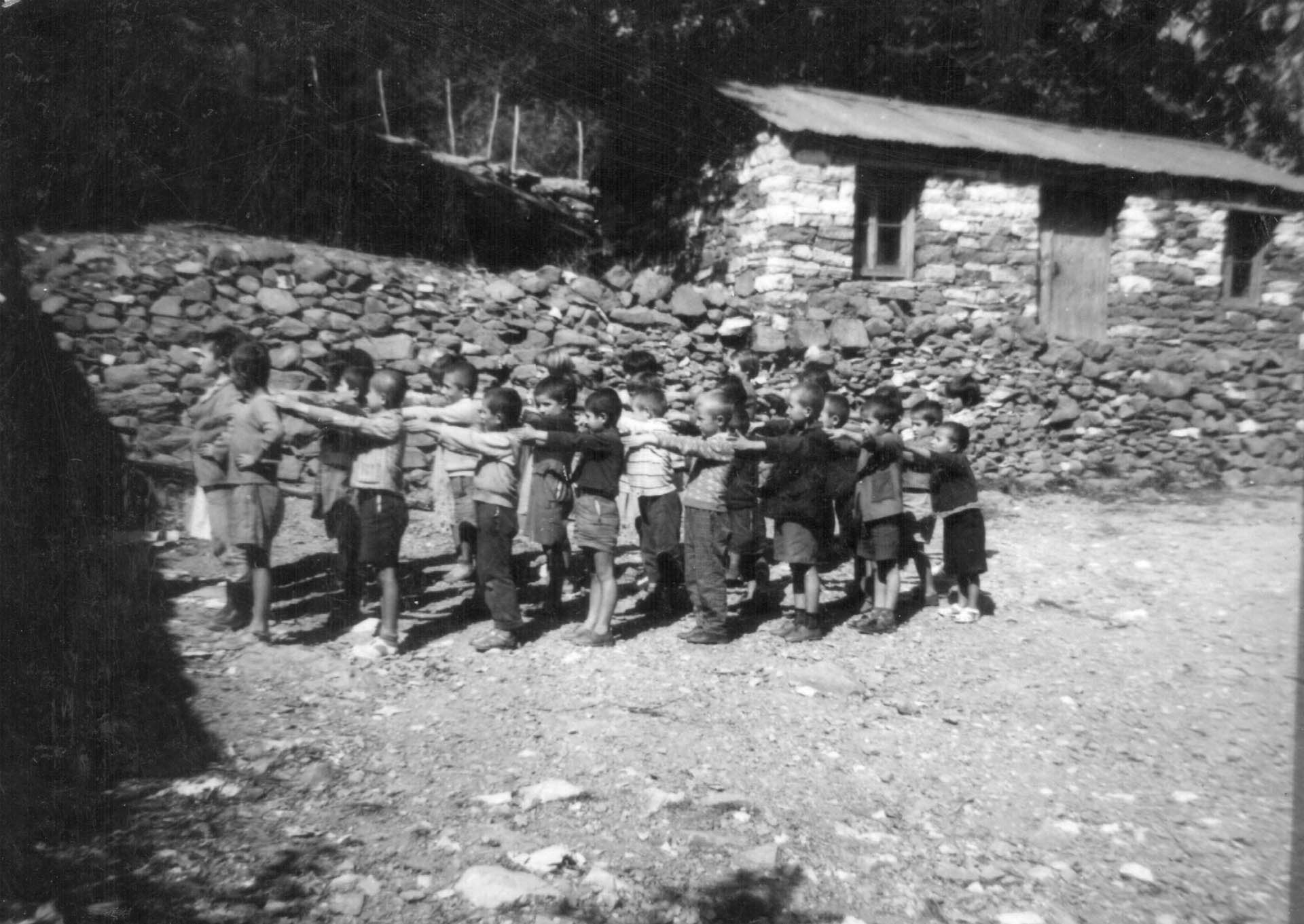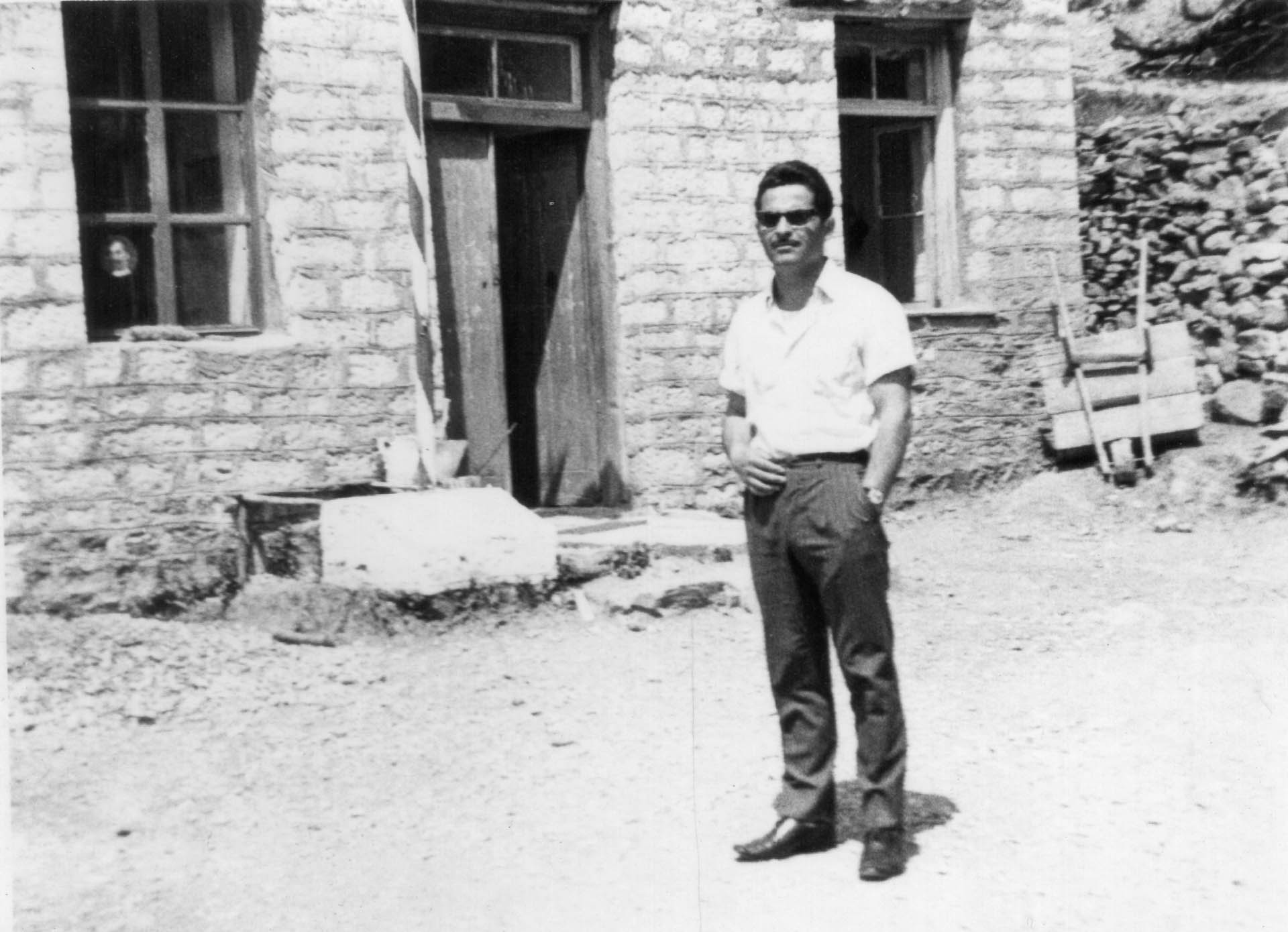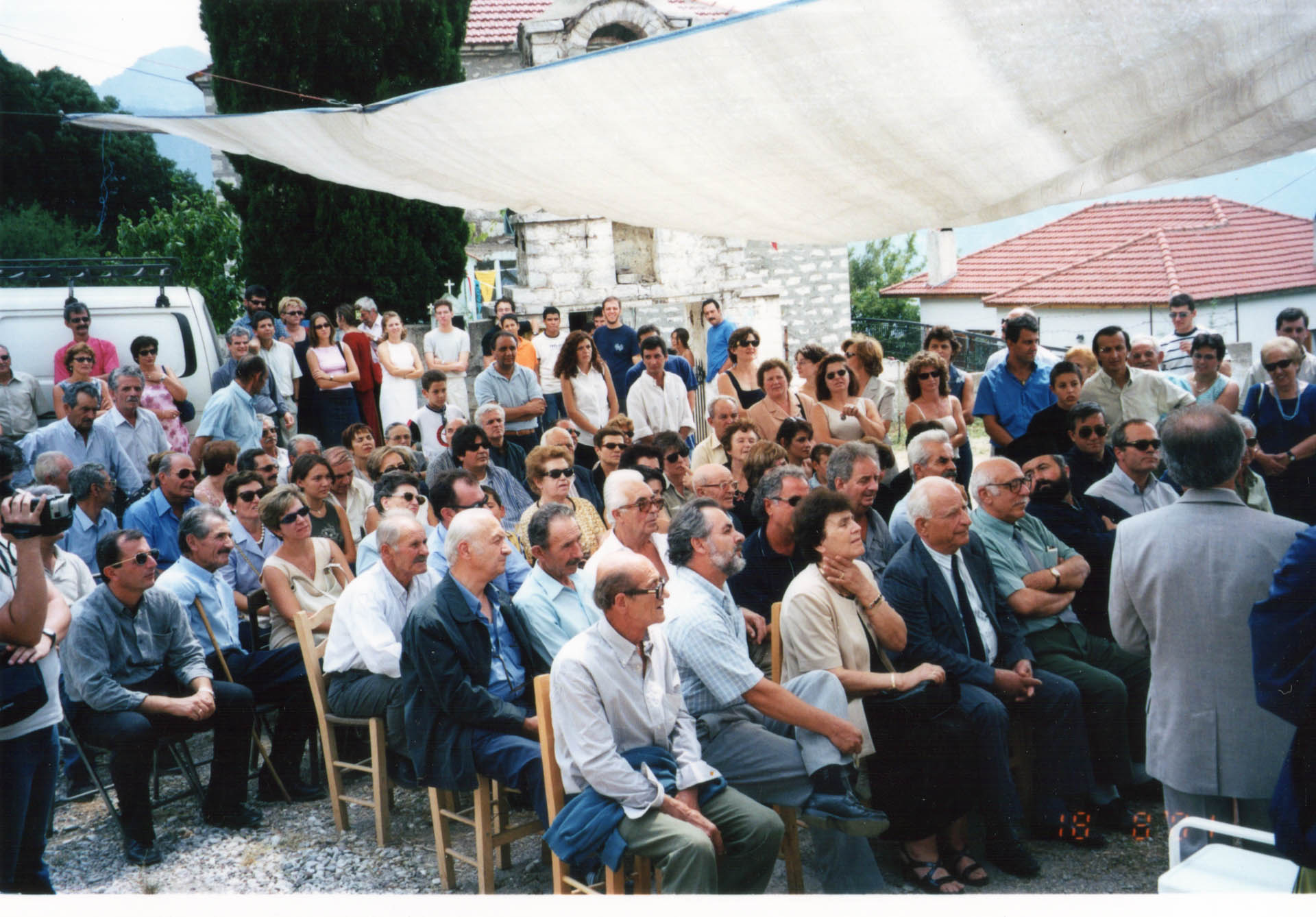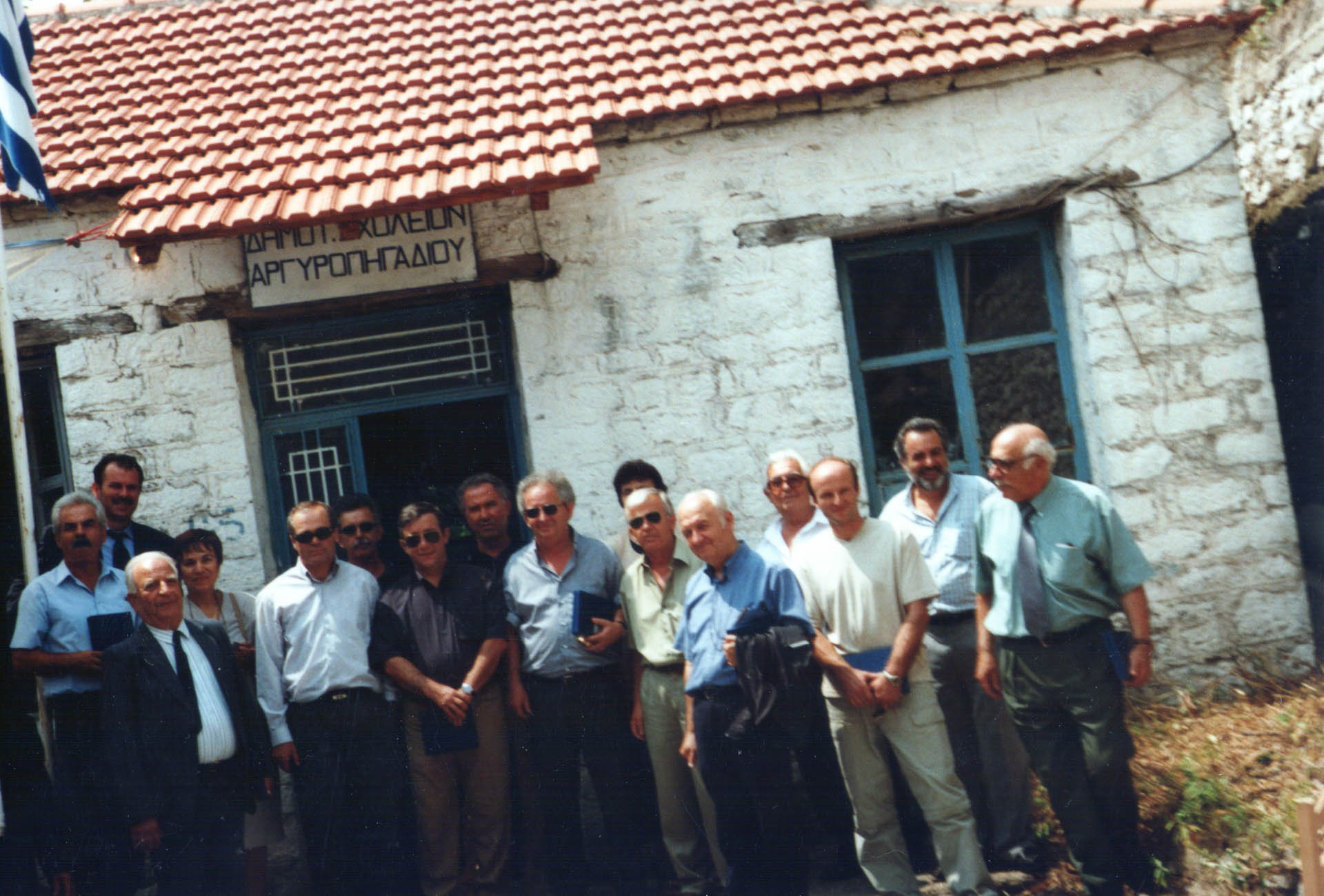During the Ottoman occupation, there weren’t any schools in the mountain villages. But some form of informal education always existed, mainly among the Church people, because the priests and chanters had to know how to read and write.
The exact form of informal education remained in the first 70 years after liberation and the establishment of the modern Greek state in 1830.
However, the inhabitants of the mountain villages have always been interested in the enlightenment of their minds in addition to surviving.
The need for education is vividly expressed in the words of Papa – Lazarus Kostopoulos, around 1920, as saved by Nikos G. Konstantinidis:
“Listen, you, young people. The village has a church, it is a good one, as long as we protect it and every Sunday or Celebration it is full of believers…Our village needs our children to learn how to read and write, to get educated because it is a shame to have so many illiterate Greeks… School, my children, enlightens people’s minds and opens churches….”
However, the lack of government care regarding the construction and establishment of schools in the poor mountainous areas led the inhabitants themselves to take the initiative to run a school in their communities. Thus, each village cared to find a teacher and cover their pay.
On the building inscription of the school, it is inscribed that 1902 was the year of its construction.
Before teachers, who were graduates from Schools of Pedagogical Education, came, the teacher had been a graduate of a Gymnasium (as it was called at the time), and they called him a “Grammatodaskalos” or “Grammatistis.” The Grammatistes used the “Octaihi,” a church book, as a primary tool for teaching and tried to transmit practical knowledge to their students, and for this reason, they took them out into the fields quite often.
A local man, Ioannis Priovolos, considered an educated man by the standards of the time, served as a teacher in Argyro Pigadi for many years.
During its operation, the School was the main place where the small village children had the chance to socialize, and the teacher was the most important carrier of knowledge and a means of communication with the rest of the world.
The School area was a warm nest for the young students, so they ran to it at the bell ringing every morning, holding their books and a block of wood for the school stove. They learned how to read and write. They played, sang, escaped from house chores, and organized their school celebrations.
The students save the photographs as souvenirs, but school memories are more than just photographs that capture the moments of the school show or celebration.
The lively and carefree school years of that era carry with them the strict eye of the guiding teacher, who undertook to travel the soul and spirit of his students to the seas of life and dreams.
The students were also responsible for the school garden, which was divided into six sections, one for each class. It covered the entire area on the south of the school building. They planted and cared for flowers and vegetables, acquiring practical knowledge for their adult life.
Let it be noted that the village’s irrigation catalogs include the school garden with a right of one-hour watering.
An indication that the community recognized the importance of the school garden and supported it.
A particular aspect of school life was the school meals in the 1960s. A separate small building was built on the teacher’s initiative, Athanasios Pyrpylis. It was called the “stegastro,” with walls made of stone and a tin roof, which functioned as a kitchen and a restaurant. The remarkable presence of the two excellent cooks, Alexandra Kostopoulou and Kostanto Dourou, is worth mentioning.
In the photo, you can see the school meals building, one level above the schoolyard, and the students’ morning line-up for prayer and then entering the classroom. The teacher is Lefteris Kolios.
“He taught us letters…”
The usually young, first-time teachers came with the zeal of the young and gave their best.
Even if some of them were too strict, the time of recognition also came for them. Nikos G. Konstantinidis writes in “Our letter” issue 18, April – May – June 1979:
“…Even if the stick came from the late teacher Vasilios Dimopoulos, called ZOTOS, finally we can say only one thing from the heart: “May his soul rest in peace. He “taught us letters.”
The Primary School of Argyro Pigadi closed in 1994. But by its new role as a “Center for Environmental Awareness and Promotion of the Cultural Heritage of Mountain Villages,” we aspire to maintain its educational character for many decades.
The letters are another pair of eyes…
Let’s try to appreciate the value of school through the words of those who did not attend school. They were, of course, mainly women. Only after the 1950s did all children, both boys and girls, attend school.
Chrysoula Karageorgou, year of birth: 1920, place of birth: Kastania
– How was your life as a young girl at your father’s house?
– How was it? I didn’t have a good time. As soon as I got old enough to attend school, I attended it for ten days, and then my father stopped me to take care of the goats. We had fifty of them.
– Did you feel sad that you didn’t learn to read and write?
– How couldn’t I? Not to know to write your name? To be mocked by other people?
– Did girls learn to read and write at that time?
– Those who attended school, they learned. Those who didn’t go to school, they didn’t learn. They were like me. I often had to sign my name, and I didn’t know how. The letters are another pair of eyes. How could I help my children with their homework? Did I know how?
Dimitra Sotiropoulou, year of birth 1925, Argyro Pigadi
-I attended school for three years.
– Why did you stop it?
– My mother didn’t want it.
– Why;
– Because we bred animals, “martinia.” My father wanted me to learn to read and write, but my mother did not. “Why should she learn to read and write?” she said. “To send letters to her lovers?” “No, woman.” my father replied. “We have four boys. They will go to the army as soldiers. They will send letters back. Who will read them to us? Shall we go and ask the neighbors?
Spyridoula Karageorgou, year of birth 1928, Loga-Argyro Pigadi
– Did you attend school?
– Until the second grade.
– Why did you stop;
– It was far away. An hour away. I had no shoes. I wore rough shoes made of pigskin. They were loose. They turned upside down. I threw them away and went barefoot. My father stopped me because he was sick… I had to plow the fields with a couple of cows…
Giorgitsa Konstantinidis, year of birth 1929, Argyro Pigadi
– Did you attend school?
-School? I don’t even know how to enter it. I didn’t attend at all.
– Did that upset you?
– Back then, let’s say, I didn’t understand it. But now it makes me very sad.
-Why?
– Why? Because my eyes are closed. Wherever I go, I can’t see. You need to know how to read and write wherever you go. I wish I knew a bit. It would be enough. I didn’t want much.
– Why didn’t you attend school?
– My father didn’t have the means back then to send me to school. He went and asked the teacher to fail us out of school to avoid problems with the others. And we didn’t attend school. None of the four sisters learned to read and write.
Giannoula Dourou, year of birth 1937, Argyro Pigadi
– Did you attend school?
– No, never. Who would send me to school?
– Did you want to go?
– I did… Which blind man doesn’t want to see? We had an aunt at home who had my father as her child, and she said: “Christo, let’s send her to school. Let it be a year to learn to write her signature, to know her name. She will get married soon. She will go to her own home.” “Yes,” my father said. “She will become a teacher at Tsornokos.” He didn’t know any better. That’s how I remained illiterate”.

